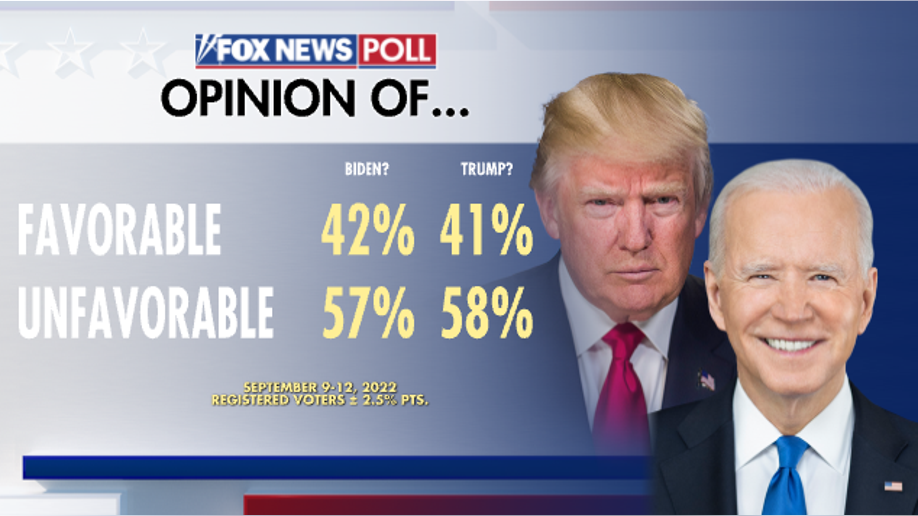Trump Administration Considers Halting Migrant Detainment Appeals

Table of Contents
The Proposed Changes to Migrant Detention Appeals
The Trump administration's proposed changes to migrant detention appeals remain somewhat ambiguous. However, reports suggest a potential move towards significantly limiting or eliminating appeals altogether. This could manifest in several ways:
- Complete elimination of appeals: A drastic measure that would effectively remove all avenues for legal challenge to detention.
- Prioritization of specific appeal categories: Focusing resources on only certain types of appeals, potentially leaving many migrants without recourse.
- Increased restrictions on eligibility for appeals: Creating stricter criteria for who can appeal their detention, further limiting access to legal processes.
The impact of these changes would be profound and disproportionately affect vulnerable migrant groups:
- Asylum seekers: Their already precarious situation would worsen, potentially leading to wrongful deportations and a chilling effect on future asylum claims.
- Unaccompanied minors: These children, often fleeing violence and exploitation, would be left with minimal legal protection.
- Victims of human trafficking: Their ability to seek justice and protection could be severely compromised.
Such a policy change would undoubtedly face significant legal challenges, potentially involving arguments around due process violations and the right to a fair hearing under both domestic and international law. The appeals process itself is a crucial element of due process within the context of migrant detention.
Arguments For Halting Migrant Detainment Appeals
Proponents of halting migrant detention appeals argue for greater efficiency and cost savings within the immigration system. Their key arguments include:
- Efficient Immigration System: They believe that streamlining the appeals process will speed up deportations and reduce backlogs, leading to a more efficient system.
- Border Security: Restricting appeals is seen as a way to strengthen border security by deterring illegal immigration.
- Resource Allocation: Eliminating appeals would free up resources that could be allocated to other aspects of immigration enforcement.
Supporters might point to the perceived burden on the system caused by lengthy appeals processes. Some government officials and think tanks have voiced similar opinions, though official statements regarding the proposed policy changes remain scarce. However, the argument for efficiency should not outweigh the importance of due process for those facing deportation.
Arguments Against Halting Migrant Detainment Appeals
Opponents of the proposed policy raise significant concerns about human rights, due process, and the potential for injustice. Their key arguments include:
- Human Rights Violations: Ending appeals would leave vulnerable migrants without recourse, potentially exposing them to human rights abuses in their countries of origin.
- Due Process Concerns: The right to a fair hearing is a fundamental principle of justice, and denying migrants access to appeals violates this right.
- Risk of Unjust Deportations: Without appeals, individuals facing wrongful deportation would have no legal avenue for redress.
Human rights organizations and legal experts consistently emphasize the importance of maintaining robust appeals processes for migrants facing detention. They highlight that migrant detention should be subject to the same legal safeguards as other forms of detention. The potential for unjust deportations under a system without robust appeals is a serious concern.
Potential Consequences of Halting Migrant Detainment Appeals
Halting migrant detention appeals could have far-reaching consequences:
- Increased Deportations: A significant rise in deportations, regardless of the merits of individual cases.
- Backlogs in Immigration Courts: While intended to reduce backlogs, the initial rush of cases could overwhelm the system, creating further delays.
- Legal Challenges and International Condemnation: The policy would undoubtedly face legal challenges both domestically and internationally, potentially leading to unfavorable rulings and international criticism.
- Humanitarian Crisis: The potential for increased suffering and vulnerability among deported migrants, particularly those fleeing persecution.
The impact on different migrant groups would vary, but asylum seekers and unaccompanied minors are likely to face the most significant negative consequences. The international community might react negatively, potentially straining US relations with other countries.
Conclusion: Understanding the Implications of Halting Migrant Detention Appeals
The proposed changes to migrant detention appeals represent a significant shift in US immigration policy. While supporters argue for efficiency and enhanced border security, opponents emphasize the critical importance of human rights, due process, and the potential for unjust deportations. The potential consequences are wide-ranging, impacting the lives of vulnerable migrants, the functioning of the immigration system, and US international relations. It's crucial to engage in informed discussions about the implications of this potential policy change, considering the human cost alongside the bureaucratic and logistical factors. Staying informed about developments regarding the Trump administration’s stance on migrant detention appeals and participating in constructive dialogue on immigration policy reform are essential to ensuring a just and humane approach to immigration. The complexities of migrant detention appeals demand a comprehensive understanding of the issues at stake within the broader immigration debate.

Featured Posts
-
 Understanding Elon Musks Financial Journey Strategies And Investments
May 10, 2025
Understanding Elon Musks Financial Journey Strategies And Investments
May 10, 2025 -
 Us Attorney Generals Daily Fox News Appearances A Deeper Dive
May 10, 2025
Us Attorney Generals Daily Fox News Appearances A Deeper Dive
May 10, 2025 -
 Elizabeth Stewart And Lilysilk A Spring Collection Collaboration
May 10, 2025
Elizabeth Stewart And Lilysilk A Spring Collection Collaboration
May 10, 2025 -
 Millions Stolen Inside The Office365 Hack Targeting Executives
May 10, 2025
Millions Stolen Inside The Office365 Hack Targeting Executives
May 10, 2025 -
 High Potential A Decade Of Psych Spiritual Transformation And Continued Relevance
May 10, 2025
High Potential A Decade Of Psych Spiritual Transformation And Continued Relevance
May 10, 2025
